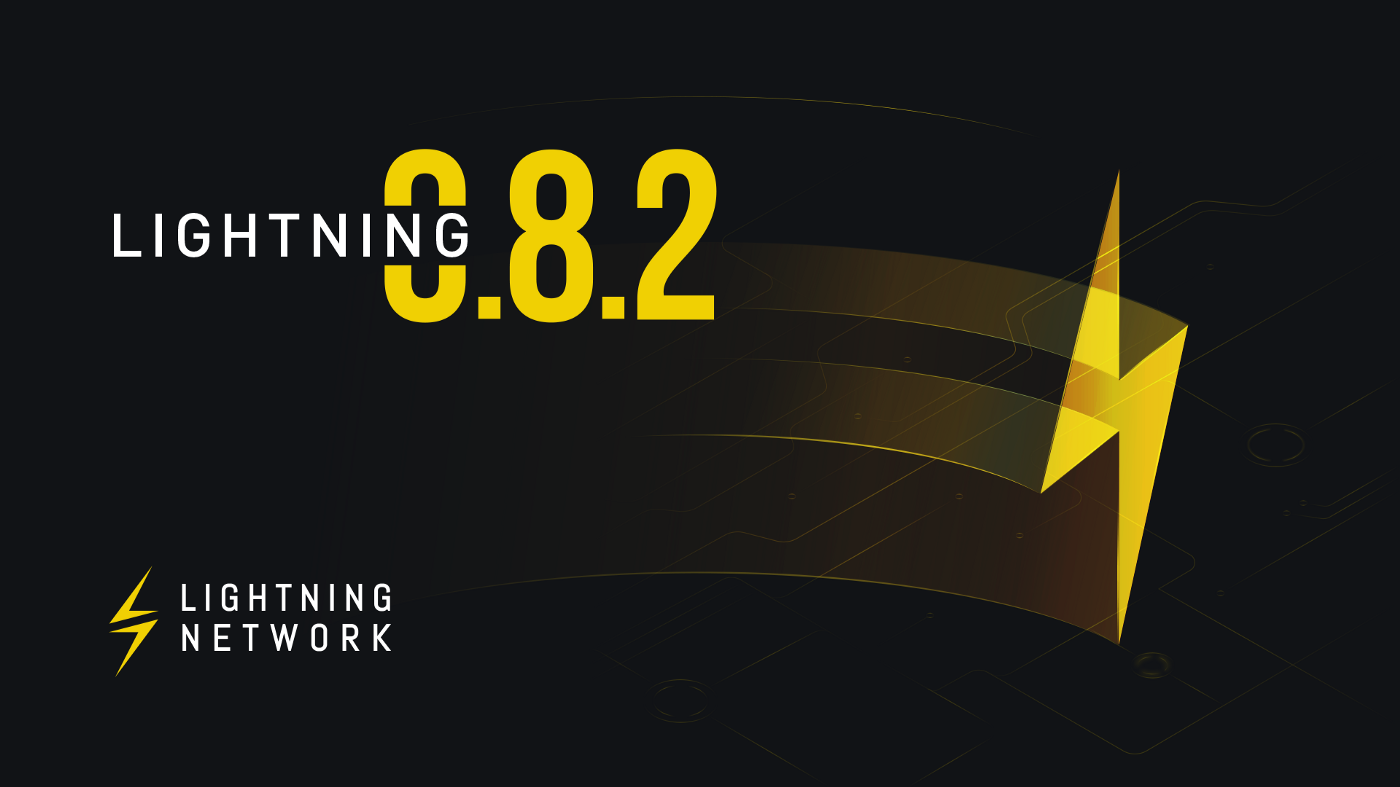The c-lightning team is pleased to announce the release of c-lightning v0.8.2. This is considered a minor release—part of our regular two-month release cadence.
v0.8.2 encompasses the work of ten c-lightning contributors, two of whom are first-time contributors! 🎉
Some of the most notable changes with this release:
- Support for receiving
keysendpayments: Alternatively known as “non-interactive money sends”. Withkeysend, bitcoins can just appear at your doorstep. - A new
large-channelsconfiguration flag: Enables opening channels of any size. - Experimental support for the blinded paths proposal: This is part of an on-going collaboration between the ACINQ and Blockstream Lightning teams.
Keysend payments
Fast-following in the steps of the Lightning Labs team, c-lightning now supports receipt of keysend payments. This allows any node to receive payments from payers without first generating an invoice. While they’re currently receive-only, you won’t want to miss out on free money being sent your way.
Larger Payment Channels
The recent spec finalization for larger payment channels means that c-lightning can now offer interoperable support for payment channels of any size, removing the size restriction of 0.16 BTC.
v0.8.2 now includes a configuration option, large-channels, which will signal support for large channels to network peers.
This change allows users to take advantage of their bitcoin holdings by providing more liquidity to the Lightning Network in larger channels. Note that your peer must also signal support for larger channels in order to take advantage of this.
A Robust Bitcoin Backend API
In v0.8.1, c-lightning’s bitcoind interoperation was broken out into a new plugin, bcli. With v0.8.2, we’re declaring this API open for plugin developers. This means that the block source for c-lightning is now swappable — you could write a custom plugin to use any source for block or fee rate data.
For example, c-lightning contributor Antoine Poinsot created sauron, a c-lightning block source plugin that uses the Esplora API as its block source instead of a local bitcoind node. This means that Lightning developers can use Blockstream Explorer, or any other private Esplora instance, for their Bitcoin and Liquid data.
Lightning node operators should note that bitcoind is still the best source for trust-minimized Bitcoin chain data. Other options, such as Blockstream Explorer or a private Esplora instance, are intended for deployments where they can add value, e.g. bitcoind is not available, or the speed of deployment is paramount.
Your Questions Answered
Finally, c-lightning now includes a new FAQ!
We’re excited about the new features and groundwork included in v0.8.2. Stay tuned for more, coming soon!
If you want to get started using c-lightning or c-lightning development, check out Rusty Russell’s “Getting Started” webinar. We can also be found on IRC (#c-lightning on Freenode) as well as on GitHub reviewing bugs, feature requests, and new code!
Note: This blog was originally posted at https://medium.com/blockstream/new-release-c-lightning-0-8-2-1c84fe0c82fe
